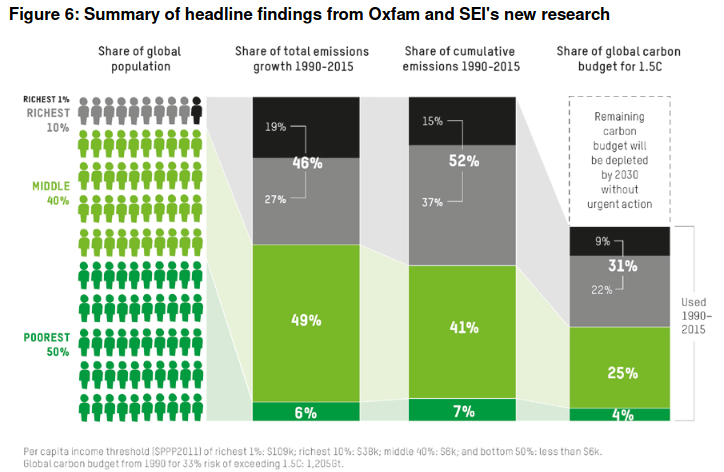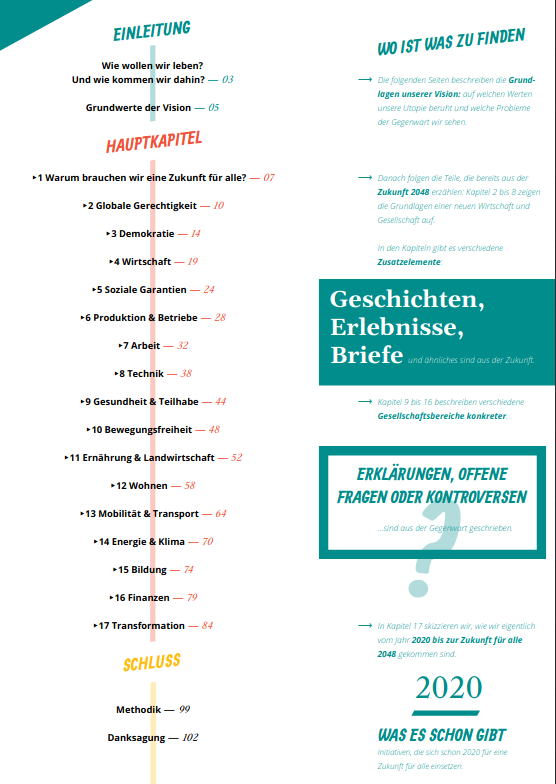
Did you know that the @ClubOfRome, whose 1972 report Limits to Growth is still the most famous critique of economic growth, was "born in the corridors of the OECD", arguably the international organization most closely associated with the promotion of growth?
History thread 1/

History thread 1/

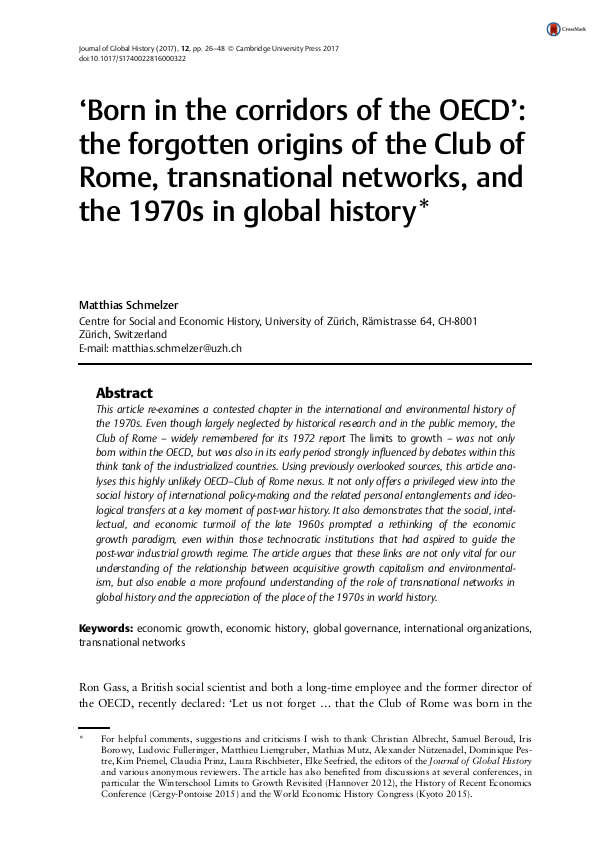
The Club of Rome’s first report appeared in 1972, was published in 30 languages, sold over thirty million copies worldwide. Club of Rome boasts considerable authority as a private, non-state, global group of experts – a wise warden for the ecological survival of planet Earth. 2/ 

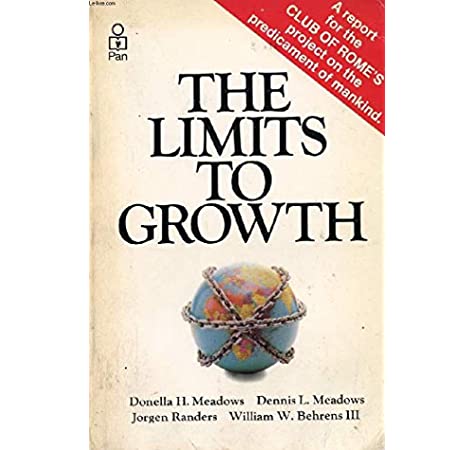

However, this extraordinary public and academic attention has overlooked the constitutive entanglements with the OECD that characterise the Club’s foundation and early history. This OECD–Club of Rome nexus needs explaining. 3/
cambridge.org/core/journals/…
cambridge.org/core/journals/…
Analysing the nexus between these two projects – one a pillar of the post-war economic order based on growth, the other an intellectual insurgency against that order – yields interesting conclusions. I went to the archives and in the paper ☝️ are all the details @GlobalHistJnl 4/
The OECD, founded in 1961 as the successor of the OEEC that had overseen the Marshall Plan aid, was, in the words of one of its Directors, “a kind of temple of growth for industrialised countries; growth for growth’s sake was what mattered”. More on this in my book 5/ 
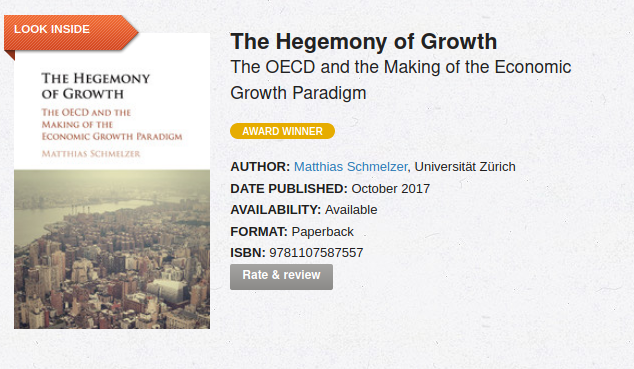
By the late 1960s, however, faced by increasing popular anxiety about unsustainable growth in Western societies, scientists and bureaucrats within the OECD launched a debate on “the problems of modern society”. 6/
tandfonline.com/doi/abs/10.108…
tandfonline.com/doi/abs/10.108…
The driving forces of this growth-critical and ecologically oriented debate were two of the most powerful men within the Organisation: its first Secretary-General Thorkil Kristensen, and long-time science director and unofficial intellectual leader, Alexander King. 7/ 



Kristensen, King, and their associates around the science directorate and the Committee for Science Policy became increasingly frustrated with governments’ inability to deal with long-term and interrelated ecological problems. 8/
They were fundamentally sceptical about the potential of existing political institutions to catalyse the controversial global debate they deemed necessary, because they regarded these institutions as the “guardians of the status quo and hence the enemies of change”. 9/ 

Thus, they got together with Italian industrialist Aurelio Peccei and in 1968 founded the Club of Rome to advance their view of planetary crisis not just within (inter-)governmental institutions, but beyond. 10/
This network blurred the lines between “official” OECD & “private” Club: While the Club and its report functioned as a “detonator”, its core members used the OECD as a „transmission belts” (Peccei), thus acquired a strong leverage. 11/
The personal overlap between OECD and Club of Rome is remarkable. Almost the entire core group of the Club, its ‘executive committee’ – which has been characterized as the true ‘motor’ of the Club, who signed the report Limits to Growth – also had positions within the OECD. 12/ 
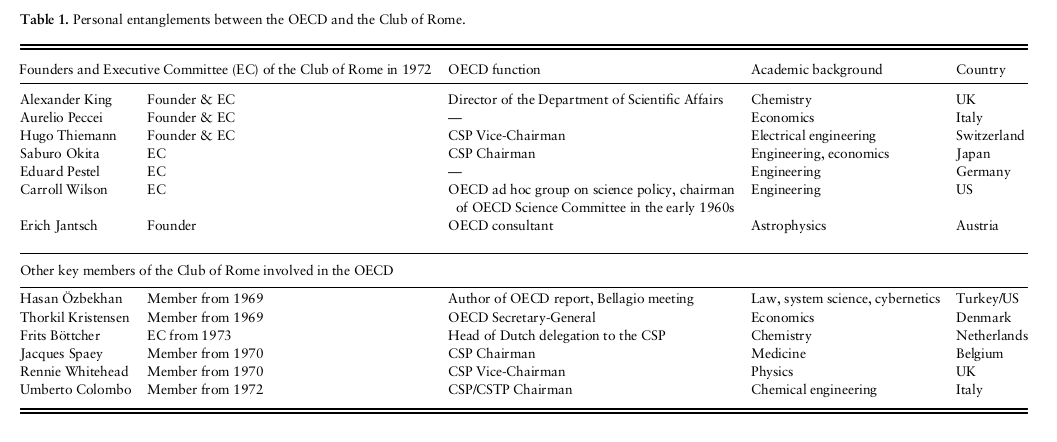
Even though claiming to speak for the entire globe, this transnational group of experts represented a narrow fraction of the global population, in part because of their organisational base in the OECD, often dubbed the “Club of the Rich”. 13/
These links are not only vital for our understanding of the relationship between acquisitive growth capitalism and environmentalism, but also enable a profound understanding of the role of transnational networks in global history and the 1970s in world history. 14/
It also helps understand, why the Club of Rome's analyses focuses so much on population and top-down solutions - in stark contrast to the global environmental justice movements and the environmentalism from below. 15/
How did Club of Rome react when its offshoot published its 1972 report? At first, it did indeed impress and unsettle the OECD. But once the public debate took off, the report provoked hostile reactions, leading to a revitalisation of the strong pro-growth position in the OECD.16/ 
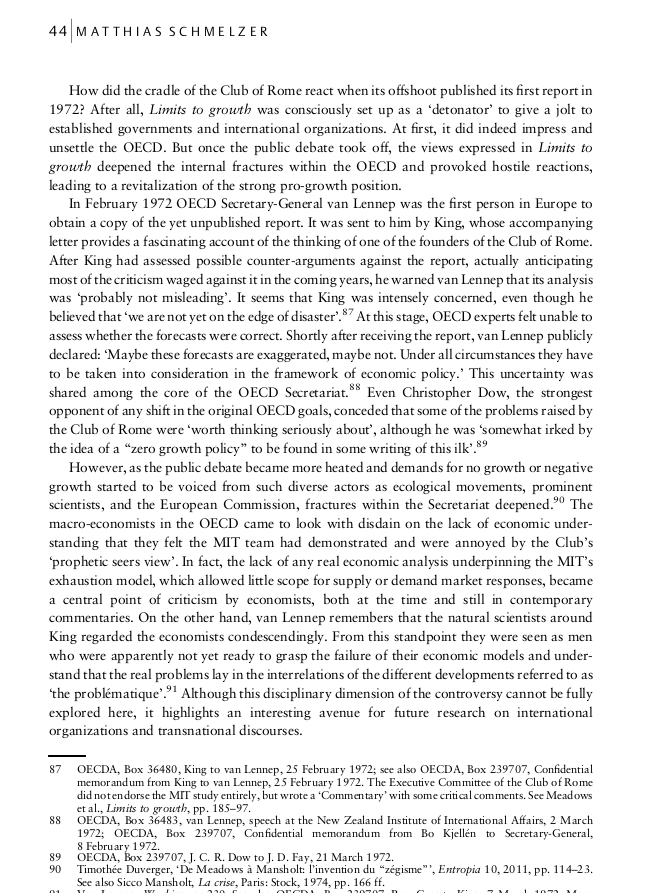
The unlikely but close links between the IO widely seen as the ‘temple of growth for industrialized countries’ and the world’s most famous growth critic: gestation, midwifery, entanglements, transfers, tensions of the OECD-Club of Rome nexus.☝️ /end
oecdinsights.org/2017/02/22/the…
oecdinsights.org/2017/02/22/the…
• • •
Missing some Tweet in this thread? You can try to
force a refresh



